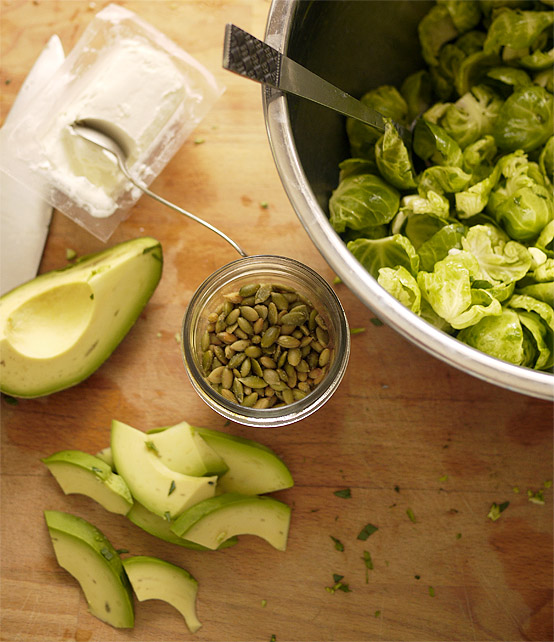We’ve all been total newbies. In fact, I spend most of my time still feeling like one. So researching this article was a great opportunity for me to do some more learning, and to share all of that good stuff with you.
I reached out to people from across the WordPress community to ask what advice they would give to people just starting their WordPress journey. I talked with developers, designers, support reps, security experts, hosting companies, theme shops, plugin developers and just about everything in between.
This article is a result of their insight, and I hope that it provides some encouragement and guidance to newbies — whether you’re a user or a developer — as well as some tips for advanced WordPress users who continue to learn throughout their lives. With that in mind: WordPress community, take it away!
Get Involved With The Community
WordPress has a tight community with active contributors from all over the world, so it’s no surprise that a bunch of people within that community recommended newbies start chatting with others. Having a desire to learn and get help will get you far. As Japh Thomson pointed out:
“There’s a lot to learn, and this is the best way to ensure you’re learning the right way to do things. It also means that as you learn, you can give back, which helps the community to grow. As you give back, you’ll find this actually helps you learn even more!
Being a part of the WordPress community is a mutually beneficial arrangement, and a fantastic way to build your skills and experience.”
There are plenty of places to get involved. If you’re a developer you could check out the weekly WordPress core developer chats on the #wordpress-dev channel on the freenode IRC (Internet Relay Chat) network. Just listening to what’s going on in the chat will help you to understand the direction of the codebase and the decisions that have been made. You’ll also learn who is doing the talking, i.e. who the project leaders are.

WordPress community members chatting at the WordPress community summit. (Image source: Andrea R)
When Brad Williams started out with WordPress, he just hung out in the #wordpress chat. Within a few months he went from asking questions to answering them, and made some new friends while he was at it.
If IRC isn’t for you, sign up for WordPress.org and use the Codex and the forums to start learning. While you’re there, you can help out by fixing any problems that you see in the Codex, or replying to support forum questions that you might know the answer to.
You can also follow WordPress people on Twitter, comment on blogs and go to WordCamps and Meetups. “Being a part of that conversation,” says Kailey Lampert, “is vital to anyone who wants to learn.”
Take the time to learn who is who in the WordPress community. As Remkus de Vries says:
“The most important thing is to check your surroundings. You can’t enter a community without knowing who the key players are and what the rules are. Learning that is also learning WordPress. No matter what you’d like to get out of the community, you have to be willing to put the time in there without expecting anything monetary in return. Think of it as earning your ‘street cred.’ The more you make yourself visible, and there’s lots of ways to do that, the better you’re helping yourself and the project.”
As a developer, you can get involved by open-sourcing your software and distributing it. This could involve writing a plugin or a theme and putting it on the WordPress repository or GitHub. “Not only will you gain the respect of other developers and community members, you’ll learn so much about what it means to be part of the WordPress community,” says Drew Strojny. “You’ll get feedback and ideas to help improve whatever you built or contributed and you’ll likely learn something along the way.”
Simon Wheatley pointed out that there is space for everyone in the WordPress community:
“If you are a developer, look out for places you can start to get involved in code contributions to plugins or to core WordPress. If you are a business person or you are using WordPress, look for opportunities to get involved in local events and meet other users. The more contact you have with the community, the better your experience will be. WordPress is written by people who see something they want to improve and get involved with the code, WordCamps and meet ups are organized by people who see a gap and get involved in helping improve the community, documentation is written by people who don’t understand something and get involved in creating explanations… getting the idea? Get involved!”
The other great thing about getting involved is that you’ll make friends and create a support network, which means if things do go wrong in the future, there’ll be people around who can help you out.
Thanks for input from: Japheth Thomson, Mason James, Eric Mann, Kailey Lampert, Dre Armeda, Ronnie Burt, Simon Wheatley, Jared Atchison, Brad Williams and Remkus de Vries.
Learn
By far, the most common advice that I was given for beginners was based around learning. This encompasses everything from setting up your first WordPress website to starting out with developing for WordPress. Learning is your first step to becoming a pro in WordPress, whatever your area.
Ben Balter points out that WordPress has its own way of doing things:
“There’s the computer-sciencey way (formal MVC, elegance on paper), and then there’s the WordPress way (think actions/filters, the loop). It’s a lot more intuitive in many ways, but if you’ve been trained the wrong way, it could take a minute or two to unlearn. WordPress purposely breaks certain formal design patterns, and almost always walks away with a solution that is more elegant for the user AND the developer.”
If you’re a developer coming to WordPress for the first time, you might wonder why WordPress does things in such a WordPressy way. Once you dig deeper you will start to find it enjoyable!

Image source: opensourceway.
And if you’re coming to WordPress for the first time to build yourself a website, Jan Dembowski has this great advice:
“Don’t be intimidated. Once you have gotten your own installation of WordPress software running, understand that the magic happens via the PHP files and possibly mod_rewrite’s .htaccess rules.
Everything hitting a WordPress installation starts with a Web request, gets processed and data gets pulled from or inserted into the database. Poof! The Web page is generated. All you had to do was sign in, publish a post and suddenly you’re publishing on the internet.
If you don’t know how it all works that can be intimidating especially if something is not working the way you thought it would.”
Don’t be Afraid to Experiment
“One of the best ways to get familiar with a new product is to tinker,” says Collis Ta’eed. Sometimes the best way to learn is to take stuff apart and put it back together, to break things and to be forced to fix them.
You should take Andrea Rennick’s advice to both users and developers to “be fearless!” Even if everything goes totally wrong, you can install a new copy of WordPress and start again.
Or, as Helen Hou-Sandi says:
“Be curious about what’s out there and don’t be afraid to figure it out for yourself. Whether that means figuring out how to get a test or playground site up and running somewhere so you can try out themes and plugins without worrying about your live site, or actually reading through the code of some of those themes and plugins to see how it’s done (or shouldn’t be done), don’t get stuck in ruts or consider the first thing you read to be gospel. It’s kind of like saying ‘do your research,’ but think of it more as encouraging curiosity rather than doing homework. In the long run, you’ll know more, and who knows — maybe you can even help somebody out who’s now in your former shoes!”
If you want to truly get rid of your inhibitions, learn how to install a local development environment. Michael Krapf suggests that your first WordPress website should be a testing playground. There are plenty of tools out there that you can use to get set up. Try out installing WordPress with MAMP on your Mac or with XAMPP on Windows. Kurt Payne recommends trying out ServerPress Desktop Server.

Don’t be afraid to experiment! (Image source: opensourceway)
Add content to your website and manipulate it. Try out themes and plugins. If you’re a developer you can create themes and plugins. You’ll be able to take your time troubleshooting without worrying about having taken your website down.
If you’re starting out in development, Pippin Williamson has this advice:
“Just build something. Too many beginning developers get caught up with trying to make sure they do it right the first time, but that isn’t that important when you first start. Everyone makes mistakes, and you learn a heck of a lot faster from your mistakes than you do from attempting to learn how to do it perfect the first time.”
Remember that the scope of things that people do with WordPress is changing. Jake Goldman points out that the 2012 WordPress survey highlighted the content management system (CMS) as the most dominant use case, but that WordPress as an “app engine” is the greatest area of growth. “Other tools might offer a better fit,” he says, “but I’ll guarantee WordPress is a capable contender. Frame the way you think about WordPress in the context of a rich ‘framework’ for building great Web applications with an out-of-the-box CMS configuration, take the time to really understand its architecture, and challenge yourself to apply WordPress to challenges way outside of the box. You’ll open up a whole new world.”
Thanks for input from: Pippin Williamson, Collis Ta’eed, Marko Heijnen, Andrea Rennick, Paul Hughes, Andy Stratton, Helen Hou-Sandi, Michael Krapf and Kurt Payne.
Read
The internet has so much information out there that it can be difficult to know where to start looking. A great place is WordPress.org. Both the forums and the Codex are great resources for learning and understanding how WordPress works. Catia Kitahara started using WordPress after a recommendation from someone on a mailing list. The first place she looked for help was the Codex. Before you start asking questions of people, have a look in the Codex and the forums to see if there is already a solution.
And there is plenty of advice outside of the Codex. The internet is full of WordPress tutorials that will help you to achieve your goals. A word of caution though: If you find a tutorial or code snippet, check the date of the post. WordPress has a fast release cycle, and a lot changes over the years. The post may still be entirely legitimate, but some will be out-of-date and may cause you confusion.
As a documentation writer, I know how little people actually read the things I write, and if the documentation actually got read people would find themselves in much less trouble. I’m not the only person aware of this.
As Joshua Strebel says:
“The old joke that people don’t read, and that they read instructions even less, is as true as it has ever been. You can do your part and make the WordPress world a better place by becoming a savvy user that wants to understand and learn versus the type that refuses to think and just wants things done for them.
We have found in our business that encouraging and guiding the customer to digest the support information we have provided and educating them on not just the How but also the Why, leads to a more satisfied and happy user. Once the unknown becomes known, everyone is happier.”
Thanks for input from: Eric Mann, Joshua Strebel, Slobodan Manic and Cátia Kitahara.
Write
You learn best when you are explaining what you do to other people. It’s a well-worn saying, but true nevertheless. You may have lots of knowledge on a specific subject, but can you break it down and explain it to other people? Once you’ve done that, you know that you’ve really got a grasp on it yourself.
The first place you could start writing is on your blog. If you’ve discovered a solution to a WordPress problem, write about it and share it with the world. This way you’re helping out people who have the same problem. It’s also a great thing that a blog has a feedback loop. If you’ve got something wrong, or if there is a better way to do it, someone will tell you.

Try out different ways to reach your goal. (Image source: opensourceway)
Brad Williams knows all about it:
“Some of my earlier WordPress posts were a big help to others and some were actually incorrect. What I learned from this is other WordPress developers would read my posts and correct any mistakes I might have made in my code samples. This actually made me more comfortable with releasing my code to the public because I realized the WordPress community ultimately just wants to help, not make fun of small coding mistakes.”
This is my own experience as well. Of course, if you get something wrong there may be people who get snarky with you, but largely the WordPress community wants to help you to improve. Good content on blogs benefits the entire community.
Once you’re comfortable with writing on your blog, why not try writing on the WordPress Codex. This is another place where you can test to see if you can make your ideas as clear in writing as they are in your head.
Thanks for input from: Brad Williams and me.
Learn the Basics
When it comes to theme development, Andy Stratton points out that he learned on default themes such as Classic and Kubrick, which were much simpler than the latest default — Twenty Twelve. Twenty Twelve shows off WordPress beautifully but it’s not the most useful tool for absolute beginners. Look for simpler themes to learn from, and learn by working through simple tasks. Here are some things Stratton suggests you try:
- Creating a theme that lists blog posts, has a single post template and page template;
- Implementing comments on a single post template;
- Implementing a custom output for comments;
- Implementing date, category and tag archives;
- Implementing a widgetized sidebar;
- Creating a custom widget;
- Create a child theme that does nothing;
- Create a child theme that changes how single posts are displayed.
“Tackling these challenges individually is similar to project management techniques of splitting larger tasks into more manageable pieces. You will learn more and start to relate how these things fit together. Eventually, you would have mind-mapped most of the template and theming structure for WordPress.”
Thanks for input from: Andy Stratton.
Read the Code
If you’re a developer, you shouldn’t just be looking at the Codex or online tutorials. These will get you started but they won’t provide you with everything you need to become an expert developer.
Alex King points out that “the documentation says what the code is supposed to do, while the code says what it actually does.” Documentation can lag behind the code, especially when core patches are merged. And while you’re poking around in the code, you may find other things that are immediately helpful and that you can file away for the future.

Image source: opensourceway.
When Konstantin Obenland started out with WordPress, he started out by looking at the code. He opened files and read them. This gave him an idea of what functions were available, how the APIs work and what was going on internally.
“The biggest challenge for me was to get an idea of where actions and filters were available and how I could alter behavior. Since they are what we work with to tweak core, I would encourage developers new to WordPress to grasp the concept of actions and filters and learn about which one to use in a given context.”
Thanks for input from: Alex King and Konstantin Obenland.
Other ways to learn
Other people had suggestions of different ways to learn:
- Stratton suggests that you get paid to learn by taking on new freelance projects that offer a little bit of new stuff for you to learn. Tell your client that it may take you a little longer and that it will require a learning curve. By the end of the project you’ll have been paid for a good job done, and you’ll have acquired a new skill.
- When he started to develop themes, Magnus Jepson learned by customizing free themes he liked instead of building from scratch. “I had basic knowledge of CSS/HTML and PHP before, but by looking at how other themes worked I gained knowledge and was able to build my first custom theme for a client.”
-
Ryan Duff reminds you that “you also need to be receptive to comments and criticism. Talking to others online, whether it is in forums, IRC, etc… That networking and learning will allow you to discover early on the who, what, when, where and why of WordPress.”
Build
It’s great to learn, but it’s also fun to build. If you want your WordPress website to be sustainable and secure, it’s worth putting some planning and thought into what you’re going to do. If you’re building your first WordPress website, think about the design and the functionality that you want. If you’re a developer, take some time to actually understand what it is that you’re doing.
Here’s some advice from Mike Little:
“It is so easy to search the Web and find some code to copy into functions.php that’s supposed to do what you were looking for. But if you don’t understand it, you won’t be able to fix it if doesn’t quite work, or change it to make it work differently. Equally importantly, you will eventually learn to spot bad code from good, and there is a lot of bad code out there in the wild that unfortunately finds it’s way into people’s websites. I include in that statement code that used to be good code, but is now old and out-of-date. I see a lot of code implementing some functionality that got incorporated into core WordPress aeons ago (that’s at least a year in Internet Time).”
If you’re a user or developer, a little bit of understanding goes a very long way. Planning your website and taking things slowly will help you to learn and understand along the way. With that in mind, here’s some advice for building your website.
Take Things Slowly
When you’re building your first website, don’t just rush in and think you can master everything at once. “Starting a new blog can quickly become overwhelming,” says Rachel Baker. “Don’t try to master theme design, plugin development, SEO, community building and writing viral content before you even begin writing your first blog post. Set small achievable goals to stay focused and keep up momentum.”

Learn to go slowly.
Just because there are lots of different things that you can do with your blog doesn’t mean that you need to do them. Amy Hendrix suggests that you have a plan for what you want your website to be and design what you’re going to use based on that plan.
“There are a zillion themes and plugins for WordPress that can add all sorts of shiny widgets, gizmos and gadgets to your site,” says Dougal Campbell. “Your first priority is to make sure that your site is easy for your readers to use — if you add too much clutter it can detract from your message.”
Remember that your website is for delivering a message and you should always keep your audience in mind.
That said, you should plan to go big, suggests Mika Epstein:
“You start small, with a good foundation and make it solid. Build your site with thought. ‘If I use ugly permalinks now, what happens if I want to change it later?’ You can’t know the future, but you can make reasonable assumptions. Make a hard list of your needs and your wants and be absolutely brutal with yourself. You know the difference between a need (gas for the car) and a want (a new car, when yours runs just fine).”
Thanks for input from: Mika Epstein, Rachel Baker, Amy Hendrix and Dougal Campbell.
Choose your plugins and themes wisely
When you start out with WordPress, it is very easy to think “OMG IT’S FREE!”and then get overexcited by all of the free plugins and themes out there. It’s important to keep in mind that just because something is free, it doesn’t mean that it’s good. And equally important within WordPress is that just because something is commercial, that doesn’t mean it’s good either. There are plenty of powerful, secure, free WordPress themes and plugins, and plenty of poor quality commercial themes and plugins. Learn to distinguish between them.
“Don’t install crappy themes and plugins,” says Rarst. “If you are not confident to know which are good — don’t rush to install any straight away or get someone to help you with choosing.”
You should avoid using Google to search for free plugins and themes, and certainly avoid any torrent/warez websites offering commercial themes and plugins for free. Get what you need from reputable plugin and theme shops. Emil Uzlec notes that the ratings system in the WordPress repositories makes it much easier for you to make a choice about what you’re installing on your website.
Both Andrew Norcross and Mark Jaquith suggest that you put some thought into your selection of plugins. Norcross suggests that you focus on what you’re trying to achieve and then find the right tools to achieve that. A clear idea of what you need helps to sift through all of the tools out there.
And, as Jaquith points out, what you need could actually be in core. “Don’t go crazy and add every one you see that you think might be useful,” he says “Get to know the core software first before you add a bunch of stuff.”
Thanks for input from: Rarst, Andrew Norcross, Mark Jaquith, Emil Uzlec and Sinisa Komlenic.
Know Your WordPress
WordPress and WordPress.com are two different things. Cristi Burcu suggests that you learn the difference between WordPress.org and WordPress.com so that you can decide which one is right for you. In brief:
- WordPress is open source content management system for building and hosting a website on a Web server.
- WordPress.com is a network of blogs that runs on that software.
They are two different entities. If all you want is a blog and aren’t interested in setting up and controlling your own website, then it’s worth checking out WordPress.com.
“It’s free,” says Chris Wallace “and you don’t need to understand any of the technology behind it. In just five minutes, you can be up and running with a shiny new website which has loads of bells and whistles.”
If you want more than a blog, or you want more control, you can use WordPress, the software. When you install the software, you can install any plugins and themes that you want, and have much more control over your website. Plenty of hosts offer one-click installs of WordPress. You can sign up for hosting, click a button and WordPress will be installed via a script. Or, you can sign up for a managed WordPress host like Page.ly, ZippyKid or WP Engine, which come pre-installed with WordPress and specialize in WordPress hosting.
Vid Luther quotes Andrew Spittle, who said “don’t pay less than a shrimp dinner for hosting.”
Thanks for input from: Silviu-Cristian Burcă, Chris Wallace, Vid Luther and me.
Don’t Reinvent The Wheel
Whether you’re building your own themes, starting to build for clients, writing custom functionality or coding plugins, remember that there is a lot of code out there and, since we’re in the WordPress ecosystem, it’s all open source. A great time to start thinking about building upon someone else’s code is when you are building themes.
Christine Rondeau notes that “there are tons of starter themes out there from super stripped down to others full with custom options.” Find one that suits your needs and learn it inside out. This will make it much faster for you to code websites.

(Image source: Zen Sutherland)
This advice filters into any aspect of development. Timothy Wood recommends looking for things that have already been done and finding ways to improve on them.
“The community is full of solutions that are not completed, it is the iterations that improves the solution to be extensible. I believe part of WordPress’s weakness is that a hack is considered a solution because the end goal is the visual or deliverable for implementation. Often the (give back to) community is overlooked in favor of hacking to just get it done.”
By working with other people’s code, instead of in a vacuum, you can help them to improve and give back to the community.
Thanks for input from: Christine Rondeau and Timothy Wood.
Ask For Help
Everyone needs a little bit of help from time to time, and there’s no shame in asking for it.
“There’s no such thing as a dumb question. those of us who have been around a long time have pretty much seen all the questions people ask. We really would be happy to point you in the right direction. Don’t be scared, most of us do not bite.”
That’s from Andrea Rennick, who you’ll often find helping out on the WordPress.org support forums.
As well as the support forums, Syed Balkhi suggests trying WordPress Stack Exchange and Quora. He does mention, however, that these places are staffed by volunteers. People don’t get paid for their time so be nice and polite. Take the time to research your question beforehand. The volunteers will appreciate that you’ve taken the time to do so, and you’ll have a better experience overall. Just landing on a support forum and saying that your website is broken doesn’t help anyone.
And remember, once you’ve gotten help from other people, you can help out by answering questions from others. As Mario Peshev says, “doing support is one of the smoothest ways to gain know-how in a platform and be aware of the common questions and problems.”
Thanks for input from: Andrea Rennick, Mario Peshev and Syed Balkhi.
Find a Mentor
Frederick Townes says that starting a business in open source requires passion for solving a specific problem. He suggests that:
“Early on, make sure you identify mentors that can help you with various aspects of your business as it develops: secure and scalable code, marketing strategy, customer development and support, etc. Be transparent, communities and companies are made up of people, offline relationships make all the difference in not only understanding customer / community needs, but it’s also essential to keep things simple and master the art of creating value.”

Image source: opensourceway.
Finding a mentor will help you to feel less like you’re out on your own, and there’ll be someone there who can provide you with advice, whether that’s on the business or technical side of your business.
Thanks for input from: Frederick Townes.
Make Use Of The APIs
WordPress has a bunch of APIs built to make your life easier. Ryan Hellyer suggests that programmers avoid writing unneeded code logic as much as possible. WordPress has many ways of handling the internal logic and those who don’t use the APIs often end up doing things incorrectly.
Konstantin Koshenin gets into detail about how the APIs offer easy solutions:
“There’s a lot of code in WordPress that is designed to make your life easier. Don’t use cURL or file_get_contents, there’s the HTTP API (wp_remote_* functions). Don’t design your own jobs system, there’s WP_Cron. Don’t do AJAX requests to your PHP files and include wp-load.php, there’s a lot of great stuff to deal with remote requests. Don’t write your own rewrites engine, there’s the powerful WP_Rewrite API. Other APIs to learn: WP_Query, Options API, Transients API, Shortcodes API, (my favorite) Settings API, Caching APIs and the new Customizer and Media APIs.”
WordPress has a lot going on for you to make use of, so it’s crazy to start writing things for yourself before checking out what it has to offer. And as Aaron Campbell says, “reinventing the wheel is not only a waste of time, but more likely to break in the future.”
Thanks for input from: Konstantin Kovshenin, Ryan Hellyer and Aaron Campbell.
Find A Focus
Finding a focus is great advice for anyone who’s out to get work or make a career in the WordPress ecosystem. While there is a lot of work around, the people who do really well are those who find their niche and dominate it.
Boone Gorges points out that this could be a specific market, such as verticals like music or restaurant journalism ,or a technical focus on a specific aspect of WordPress — BuddyPress, Multisite or a specific framework. He says:
“Specialization has lots of benefits. You get to know your part of the codebase, making it faster to do new and interesting things. Getting your work done faster means making more money. Expertise leads to a better reputation, and reputations are easier to earn in a niche market. The better your reputation, the more you can charge. And if your focus is on one of the non-commercial parts of the WP ecosystem, like bbPress or BuddyPress, your expertise will make it possible to get involved in the free software project in ways that might be easier than cracking into WordPress core.”
This type of focus doesn’t apply only to developers. Tammie Lister is right when she says that the “WordPress world would suffer if we were all developers.” Find the thing that you’re good at and specialize in that area — the WordPress room has plenty of space for designers, writers, support pros, entrepreneurs, business people and all the other types who make up the WordPress ecosystem.
Thanks for input from: Boone Gorges and Tammie Lister.
Go To Events
WordCamps and Meetups, or any sort of WordPress event, are a great way to learn more about WordPress. WordCamps are normally large one or two day conferences, sometimes followed by a “hack day” or “dev day” during which developers get together to work on WordPress. They usually have some sort of social element where you can learn more about your WordPress peers.

(Image source: Stefano Coviello)
Meetups are smaller events. They are usually more regular, lasting a few hours with one or two speakers. While WordCamps often have people from all over a country, Meetups are usually focused on a specific local area. You can learn about WordCamps on WordCamp Central, or find some Meetups on Meetup.com.
Brad Williams recommends that developers go to events to meet other developers — he promises that they don’t bite (I will hold him to this promise).
Kim Gjerstad suggests that you find some people to have a beer with:
“It’s good to go out and meet other people and ask their opinion so if you can find a WordCamp or find a WordPress beer after hours, go out and meet people and talk to them. It’s a whole other level of learning when you meet people, and there is so much advice to be given.”
Thanks for input from: Kim Gjerstad and Brad Williams.
Final Words Of Wisdom
- If you want to read just one website for tips to get started with your blog, Paul Gibbs recommends reading WordPress.com’s Get Focused page.
-
Seisuke Kuraishi says you should keep WordPress updated, as “this is the easiest way to keep your website secure and bug free.”
- If you’re a blogger, Eric Mann suggests that you reach out. “Blogging is never done in a vacuum.” Comment on other people’s blogs, respond to comments on your own and interact with the community.
- Another one for bloggers, this time from Vid Luther. Focus on your content. “People come to your website to read and consume what you have to say, interesting content is key. Anything else is bike shedding.”
- If you’re starting a WordPress business, start it based on something that you need, says Vladimir Prelovac. “For example a certain plugin functionality, theme niche or a specific service. This way, even if the business does not take off, you will at least satisfy your own need by building it.”
Conclusion
I want to finish this article with some excellent advice from Isaac Keyet. Isaac is the Mobile Group representative at WordPress.org. His advice is applicable to anyone:
“Just jump in. If you have an idea for a great blog or website, set something basic up quickly (there are good free or cheap WordPress hosts out there) and start writing. As you go, you’ll learn more about what works and what doesn’t, as well as what your readers like the most. There really is no time like now, and too many great ideas never see the light of day because their inventor didn’t take that first step.”
Jump in, get started, don’t be afraid and always feel that you can ask for help. The WordPress community is a pretty welcoming place. Find some of the people mentioned in this article and follow them on Twitter; they continue to come up with WordPress advice that you’ll be able to use as you continue your WordPress learning experience.
Hang out in the WordPress chat room, help out on the support forums, go to WordCamps and Meetups. Everyone starts out as a beginner, but with WordPress it’s easy to get far. All you need is a little bit of patience, commitment and enthusiasm. Eventually you’ll be the one offering the advice.
Got any advice of your own? Let us know in the comments!
(cp) (il)
© Siobhan McKeown for Smashing Magazine, 2013.






























































 Pamela Prindle, 26, who has no boyfriend and who works in the accounting department of the Angel Fire resort in New Mexico, gave similar reasons for spending “a good portion of her day” on her Pinterest board titled “I’m single but still planning my wedding.” –
Pamela Prindle, 26, who has no boyfriend and who works in the accounting department of the Angel Fire resort in New Mexico, gave similar reasons for spending “a good portion of her day” on her Pinterest board titled “I’m single but still planning my wedding.” – 








































